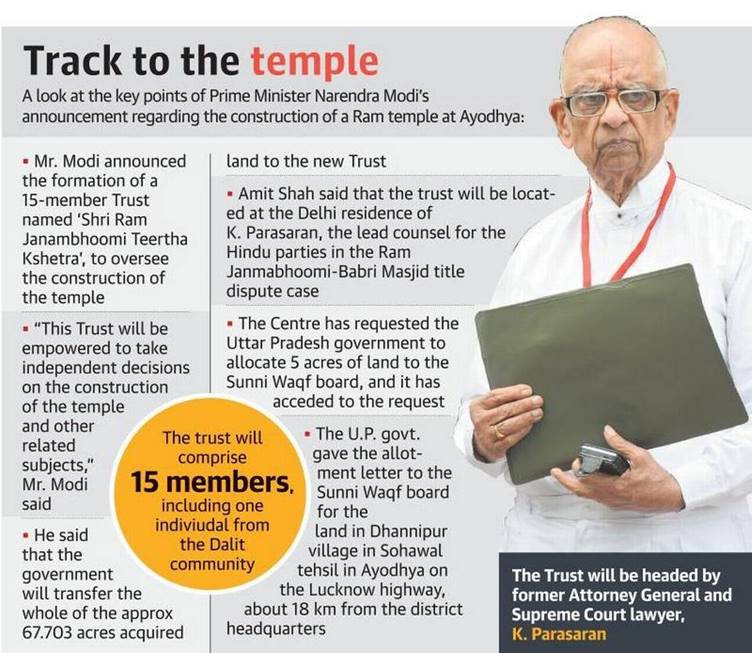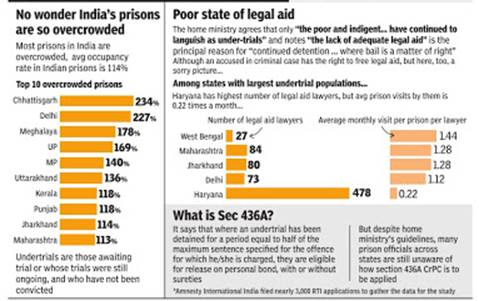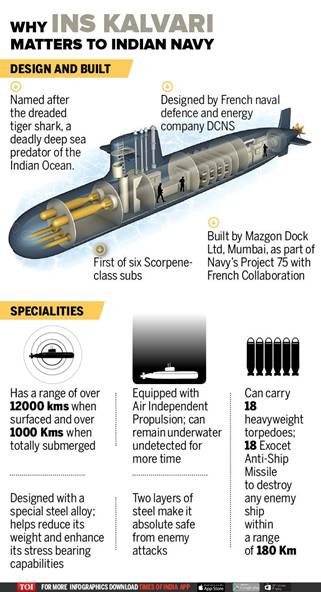



Course correction for the Speaker’s office
- It recommended that Parliament should rethink as to whether disqualification petitions ought to be entrusted to a Speaker as a quasi-judicial authority when such a Speaker continues to belong to a particular political party
- Parliament may seriously consider a Constitutional amendment to substitute the Speaker of the Lok Sabha and Legislative Assemblies with a ‘permanent Tribunal’ headed by a retired Supreme Court judge or a retired Chief Justice of a High Court, or some other outside independent mechanism to ensure that such disputes are decided both swiftly and impartially.
- Give teeth to the provisions contained in the Tenth Schedule, which are so vital in the proper functioning of India’s democracy.
- The Speaker has administrative, judicial and regulatory functions when dealing with maintaining the decorum of the house.
- She is the ‘ultimate interpreter and arbiter’ of those provisions which relate to the functioning of the House.
- Her decisions are final and binding and ordinarily cannot be easily challenged.
- She decides the duration of debates can discipline members and even override decisions by committees.
- She represents the collective voice of the House
- She is the sole representative of the House in the international arena’.
- She represents the dignity of the House, the freedom of the House.
- Since the House represents the nation, in a particular way, the Speaker becomes a symbol of the nation’s freedom and liberty.
- Speaker should be an honoured position, a free position and should be occupied always by persons of outstanding ability and impartiality.
- The office has been criticised for being an agent of pernicious partisan politics.
Jagjit Singh Case:
- Questions have been raised about the confidence in the matter of impartiality on some issues having political overtones, which are decided by the Speaker in his capacity as a Tribunal.
Kihoto Hollohan case:
- The Speaker being an authority within the House and his tenure being dependent on the will of the majority therein, likelihood of suspicion of bias could not be ruled out.
- The extent of the Speaker’s political commitment often depends on the personality and character of the person holding the office.
- It would be unrealistic to expect a Speaker to completely abjure all party considerations while functioning as there are structural issues regarding the manner of appointment of the Speaker and her tenure in office.
- Elections for speaker post are not always by consensus and there have been cases when different parties have fielded their own candidates.
- All political parties campaign in the constituency of the Speaker.
- Even if the Speaker is re-elected to the House, the office of the Speaker in India is still open for elections.
- Making it compulsory for the speaker to resign from his party before taking the position of speaker. It will ensure neutrality of the post.
- Some of speaker’s decision like suspension of members may be subject to review by judiciary.
- A code of ethics for MPs must be formed to clearly define cases for suspension and dismissals.
- Power must be given to speaker to form a parliamentary committee to recommend removal of MPs regularly disrupting the house.
- Scheme should be brought wherein Speakers should renounce all political affiliations, membership and activity once they have been elected, both within the Assembly and in the country as a whole.
- In UK, once elected, the Speaker gives up all-partisan affiliation, but remains in office until retirement, even though the majority may change. She does not express any political views during debates and is an election candidate without any ticket. As Impartiality, fairness and autonomy in decision-making are the hallmarks of a robust institution.
- Administrative matters would continue to be under the Registrar, Cooperative.
- Cooperative banks would be regulated under the RBI’s banking guidelines.
- Their auditing would also be done as per its norms.
- Qualifications would be laid down for appointments, including that of Chief Executive Officers.
- Prior permission from the RBI would be required for the appointment of key positions.
- The regulator would deal with issues such as loan waivers.
- The RBI would also have powers to supersede the board of any cooperative bank in financial distress.
- Recent unfolding crisis in Punjab and Maharashtra bank.
- Need to strengthen the financial stability of cooperative banks
- Need to boost public confidence in the banking system.
- Cooperative banks have 8.6 lakh account holders, with a total deposit of about ₹5 lakh crore.
- They play a crucial role in rural financing, with funding of areas under agriculture, livestock, milk, personal finance, self-employment, setting up of small-scale units.
- Came into being with the aim to promote saving and investment habits among people, especially in rural parts of the country.
- They are financial entities established on a co-operative basis and belonging to their members.
- This means that the customers of a co-operative bank are also its owners.
- Co-operative banks are registered under the States Cooperative Societies Act.
- They also come under the regulatory ambit of the Reserve Bank of India (RBI) under two laws, namely, the Banking Regulations Act, 1949, and the Banking Laws (Co-operative Societies) Act, 1955.
- Provide for a mechanism to settle disputed tax cases to the tune of ₹9.32 lakh crore.
- It focusses on trust building rather than seeing it as mere tax resolution.
- It will not be an open-ended scheme but will have a specific time-frame.
- The bill will reduce the litigation expenditure for the government and generate revenue.
- The bill equates an honest tax payer with the dishonest tax payer and violates the principle of equality.
- It hurts tax collection efforts.
- Taxpayers whose liabilities are caught in dispute can pay their taxes by March 31, 2020.
- Avail themselves of a complete waiver of interest and penalty.
- Pulled up 14 thermal power plants for not complying with a December 31, 2019 deadline to limit sulphur dioxide emissions.
- India put in place a phased-approach that directs 440 coal-fired units to limit particulate matter, sulphur dioxide and nitrous oxide emission from thermal plants.
- They need to put in place measures to limit pollution by December 2022.
- Non-compliance by the thermal power plants is an ongoing dispute being contested at the National Green Tribunal.
- The 14 plants have been given until the end of this month to explain to the CPCB why they have not complied with the norms and why action should not be taken.
- The CPCB has the power to impose steep fines
- Shut a unit under the provisions of the Environment Protection Act.
- These norms can help reduce PM emissions by about 35%, NOx emission by about 70%, and SO2 emissions by more than 85% by 2026-27.
- The Central Pollution Control Board (CPCB), statutory organisation, was constituted in September, 1974 under the Water (Prevention and Control of Pollution) Act, 1974.
- Further, CPCB was entrusted with the powers and functions under the Air (Prevention and Control of Pollution) Act, 1981.
- Major Functions:
- To promote cleanliness of streams and wells in different areas of the States by prevention, control and abatement of water pollution
- To improve the quality of air and to prevent, control or abate air pollution in the country.
Reference: https://www.thehindu.com/news/national/cpcb-pulls-up-14-coal-plants/article30745054.ece

- Approved a scheme for the construction of a grand Ram temple in Ayodhya by setting up an autonomous trust, Ram Janmabhoomi Teerth Kshetra.
- The government had decided to transfer the entire 67.703 acres to the trust.
- This trust will be fully autonomous to take any decision regarding the construction of temple.
- The Uttar Pradesh government had approved the Supreme Court’s direction to grant 5 acres to the Central Sunni Wakf Board.
- There should be at least one lawyer for every 30 prisoners. This is not the case now.
- Speedy trial remains one of the best ways to remedy the unwarranted phenomenon of over-crowding.
- Use of video-conferencing for trial.
- Overcrowding is a common bane in the under-staffed prisons.
- Both the prisoner and his guard equally suffer human rights violation.
- The under trial prisoner, who is yet to get his day in court, suffers the most
- Most prisons are “teeming with under trial prisoners”.
- The preparation of food in kitchens is “primitive and arduous”.
- The kitchens are congested and unhygienic and the diet has remained unchanged for years now.
- Indian prisons are highly overcrowded. Overcrowding makes availability of resources per person very difficult. It leads to violence and sexual harassment in the prison.
- More than 65% prison population is of under trials, which is much higher compared to international standards.
- Free legal aid is not available for all the prisoners due to paucity of government lawyers in India.
- Indian prisons have poor infrastructure in terms of space availability, hygiene conditions and ventilation in prisons.
- High number of custodial death due to poor infrastructure, torture by the police personnel and lack of health facilities in prison.
- There exist a nexus in prison and prisoners who are able to bribe the jail official gets better facilities than the rest.
- Women prisoners face sexual harassment, lack of basic hygiene facility and poor nutritional intake.
- Population of poor section namely Muslims, Schedule caste and schedule tribe is way higher in prisons than rest of the section due to the biasness among police personnel and lack of availability of resources to secure the bail.

- The SC asserted that the mere detention does not deprive the convicts of all the fundamental rights enshrined in our constitution.
- The court held that the fact that a person is legally in prison does not prevent the use of Habeas Corpus to protect his other inherent rights.
- The right to fair treatment and right of judicial remedy are pre-requisites of administration of prison justice.
- In Hussain Era Khatun Case, Court adopted a dynamic and constructive role with regard prison reforms. Court apart from other things stressed on the improvements of the conditions of the prisons in India.
- A surrogate mother need not be a “close relative”.
- Advocated omission of the five-year time limit before seeking surrogacy.
- Allowing single women (widow or a divorcee and Persons of Indian Origin) to avail of surrogacy.
- Increasing insurance cover for the surrogate mother from the 16 months proposed in the Bill to 36 months.
- Delete the definition of “infertility” as “the inability to conceive after five years of unprotected intercourse” on grounds that it was too long a period for a couple to wait for a child.
- Assisted Reproductive Technologies (Regulation) Bill (ART), which is awaiting Cabinet approval, may be taken up before the Surrogacy (Regulation) Bill.
- The ART Bill primarily deals with technical, scientific and medical aspects, including the storage of embryos, gametes, oocytes, etc. as contained in the Surrogacy Bill.
- Regulation of surrogacy: The bill prohibits commercial surrogacy, but allows altruistic surrogacy.
- Altruistic surrogacy involves no monetary compensation to the surrogate mother other than the medical expenses and insurance coverage during the pregnancy.
- Surrogacy is permitted when it is:
- For intending couples who suffer from proven infertility;
- Altruistic;
- Not for commercial purposes;
- Not for producing children for sale, prostitution or other forms of exploitation;
- For any condition or disease specified through regulations.
- The intending couple should have a ‘certificate of essentiality’ and a ‘certificate of eligibility’ issued by the appropriate authority.
- Surrogacy clinics cannot undertake surrogacy related procedures unless they are registered by the appropriate authority.
- The central and the state governments shall constitute the National Surrogacy Board (NSB) and the State Surrogacy Boards (SSB), respectively.
- Functions of the NSB includes:
- Advising the central government on policy matters relating to surrogacy;
- Laying down the code of conduct of surrogacy clinics;
- Supervising the functioning of SSBs.
- A child born out of a surrogacy procedure will be deemed to be the biological child of the intending couple.
- An abortion of the surrogate child requires the written consent of the surrogate mother and the authorisation of the appropriate authority.
- The offences under the Bill include:
- Undertaking or advertising commercial surrogacy;
- Exploiting the surrogate mother;
- Abandoning, exploiting or disowning a surrogate child;
- Selling or importing human embryo or gametes for surrogacy.
- The Scorpene submarine has the ability to be equipped with an AIP (Air Independent Propulsion) system.
- The first AIP will be equipped during the first refit of the first Scorpene.
- An indigenous fuel cell-based AIP module is currently under development by the DRDO.
- An AIP module gives stealth and extended endurance to diesel-electric submarines by allowing them to stay submerged longer.

- The Project 75I-class submarine is a follow-on of the Project 75 Kalvari-class submarines for the Indian Navy.
- Under this project, the Indian Navy intends to acquire six diesel-electric submarines, which will also feature advanced air-independent propulsion systems to enable them to stay submerged for longer duration and substantially increase their operational range.
- All six submarines are expected to be constructed in Indian shipyards.
UNESCO has declared the Walled City, famous for its grid plan-based architecture and buildings constructed with the pink facade, as a world heritage site.
- The United Nations Educational, Scientific and Cultural Organization is a specialized agency of the United Nations (UN) based in Paris, France.
- A World Heritage Site is a landmark or area, selected by the United Nations Educational, Scientific and Cultural Organization (UNESCO) for having cultural, historical, scientific or other form of significance, which is legally protected by international treaties.

© 2025 iasgyan. All right reserved